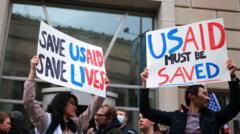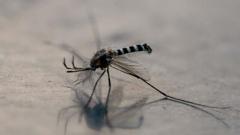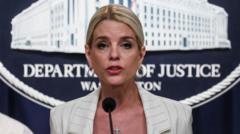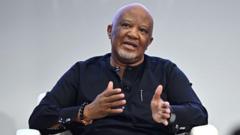The recent freeze on funding of the United States Agency for International Development (USAID) has raised alarms regarding global health initiatives, according to the World Health Organization (WHO). Dr. Tedros Adhanom Ghebreyesus, the head of the WHO, noted that the cessation of funding has disrupted critical programs aimed at combating diseases like HIV, polio, mpox, and bird flu across fifty nations.
US Aid Freeze Impacts Global Health Initiatives, Warns WHO

US Aid Freeze Impacts Global Health Initiatives, Warns WHO
The World Health Organization highlights severe repercussions from the freezing of billions in US overseas aid, impacting 50 countries' disease control programs.
This decision stems from US President Donald Trump's claims of corruption and inefficiency within USAID, prompting budget cuts that halted various humanitarian aid initiatives. During a virtual press conference, Dr. Tedros emphasized that the suspension of the President’s Emergency Plan for AIDS Relief (PEPFAR) has significantly impacted HIV treatment accessibility, outright stating that clinics have closed and healthcare workers suspended amidst the crisis.
Experts have cautioned that this aid pause could lead to an escalation in infectious diseases and postpone vaccine development. Trump has justified this action by criticizing USAID's overall effectiveness and financial management. Meanwhile, billionaires such as Elon Musk have echoed similar sentiments, labeling the organization inadequately run, despite the absence of substantial evidence to support such accusations.
In contrast, it was under President Biden's administration that WHO received monumental support, contributing significantly to its operational capacity against global health threats. Dr. Tedros lamented the withdrawal of collaboration through the WHO as a result of the current administration’s changes, particularly noting diminished reporting on bird flu incidents.
In response to the crisis, WHO has implemented emergency protocols used in the pandemic, focusing on resource sharing among nations to manage shortages in crucial medical supplies. However, experts within the agency, like Meg Doherty, argue that while these measures can provide short-term relief, sustainable and long-lasting solutions need to be formulated to mitigate the harm from ongoing aid freezes.
As the international community watches these developments closely, the potential repercussions on global health continue to raise important questions about the long-term implications of US foreign aid policies on worldwide health systems.
Experts have cautioned that this aid pause could lead to an escalation in infectious diseases and postpone vaccine development. Trump has justified this action by criticizing USAID's overall effectiveness and financial management. Meanwhile, billionaires such as Elon Musk have echoed similar sentiments, labeling the organization inadequately run, despite the absence of substantial evidence to support such accusations.
In contrast, it was under President Biden's administration that WHO received monumental support, contributing significantly to its operational capacity against global health threats. Dr. Tedros lamented the withdrawal of collaboration through the WHO as a result of the current administration’s changes, particularly noting diminished reporting on bird flu incidents.
In response to the crisis, WHO has implemented emergency protocols used in the pandemic, focusing on resource sharing among nations to manage shortages in crucial medical supplies. However, experts within the agency, like Meg Doherty, argue that while these measures can provide short-term relief, sustainable and long-lasting solutions need to be formulated to mitigate the harm from ongoing aid freezes.
As the international community watches these developments closely, the potential repercussions on global health continue to raise important questions about the long-term implications of US foreign aid policies on worldwide health systems.




















